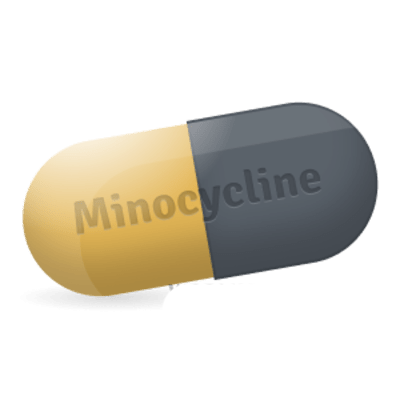I took Cytotec as an ulcer preventative since I take NSAIDs all the time. I started having some mild stomach irritations from the medications but after starting the course it went away. The medication worked quickly and without any significant side effects.

Cytotec
- Quality products
- Support 24/7
- Fast delivery
What is it?
Cytotec is a medicine whose main purpose is to prevent ulcers in patients taking nonsteroidal anti-inflammatory drugs (NSAIDs), such as aspirin and ibuprofen. The main active ingredient of the drug is misoprostol, a synthetic prostaglandin-like substance that is produced in the stomach. Misoprostol protects the gastric mucosa from the damaging effects of NSAIDs, which can destroy prostaglandins. The onset of action of the drug is only 30 minutes after administration, and its effect lasts for about three hours.
Composition
The composition of Cytotec includes several components, the main one being misoprostol. To fully understand the action of the drug, it is worth paying attention to its components:
- Misoprostol is a synthetic analogue of prostaglandin E1, an active agent that has a protective effect on the gastric mucosa;
- Fillers and excipients (the exact list of these components may vary depending on the manufacturer).
The role of misoprostol is to imitate natural prostaglandins, increasing the production of mucus and bicarbonates, which in turn helps protect the stomach from acid and other aggressive factors. The carefully selected composition of components is aimed at achieving the maximum protective effect with minimal side effects.
How to use?
To use Cytotec correctly, it is important to follow the instructions for its use, which will help to achieve the optimal therapeutic effect. The recommended dosage for adults is 0.2 mg 3-4 times a day during meals. A complete menu helps reduce the risk of side effects.
- Take the drug during meals to reduce the risk of unpleasant effects from the gastrointestinal tract.
- Take the last dose before bedtime to maintain a stable effect throughout the night.
- In case of poor tolerance, reduce the dose to 0.1 mg and consult a doctor.
Remember that following the recommendations for use and timely administration of the drug help to achieve the desired effect without increasing the risk of complications.
How does it work?
The mechanism of action of Cytotec is based on the ability of misoprostol to protect the gastric mucosa. It acts as an analogue of natural prostaglandins, which increase the secretion of protective mucus and bicarbonates, thereby creating a barrier against excess exposure to gastric acid and other irritants.
When taking Cytotec, the active substance begins to act after 30 minutes, allowing you to quickly achieve a protective effect. By stimulating secretion and enhancing barrier functions, the drug prevents damage to stomach cells and the creation of defects such as ulcers. This protects the body from complications associated with long-term use of NSAIDs and their negative impact on the gastric mucosa.
Indications
Cytotec is indicated for a wide range of conditions requiring protection of the gastric mucosa, especially in patients taking non-steroidal anti-inflammatory drugs. The drug is also used to treat a number of gastroenterological problems that require strengthening the bodys defenses.
- Prevention of gastric ulcers in patients taking NSAIDs such as aspirin;
- Maintaining gastroprotection in chronic inflammatory diseases of the stomach;
- Improving the condition of the gastric mucosa in ulcerative lesions caused by stress or drug therapy.
Cytotec helps with a variety of medical conditions that require reducing the risk of gastric damage, making it indispensable in therapy associated with the use of aggressive medications.
Contraindications
Like many medications, Cytotec has a number of contraindications that should be considered before using it. Incorrect use can cause harm, so it is important to familiarize yourself with the restrictions.
- Patients under 18 years of age should not take this drug;
- Pregnant or breastfeeding women, as the drug can cause uterine contractions and threaten pregnancy;
- Persons with severe renal impairment.
Given these contraindications, it is necessary to consult a doctor before using it and inform about any conditions that may be associated with the risk of taking it.
Side effects
Although Cytotec is generally well tolerated, it may cause some side effects. These are usually related to the digestive system, but in rare cases others may occur.
- A common side effect is diarrhea, which may occur in the first weeks of use;
- Nausea and abdominal pain are possible;
- Rare cases include dizziness or rash;
- In very rare cases, changes in blood pressure or seizures;
- Uncomfortable menstrual pain may also be a cause for concern in women.
If you experience any unpleasant symptoms, stop using and consult a doctor to assess your condition and the possibility of adjusting the therapy.
Frequently asked questions
Cytotec Reviews and Experiences
After starting Cytotec therapy, I had to change my diet a little to maintain comfortable digestion. The first few days were a little difficult due to diarrhea, but then the body got used to it and everything became much better. I noticed that the drug protects the stomach from unpleasant manifestations.
I had an unpleasant experience with other gastroprotective drugs, but Cytotec turned out to be much softer. The dose had to be adjusted due to minor discomfort, but the doctor selected the optimal scheme, and now the drug helps me without problems.









